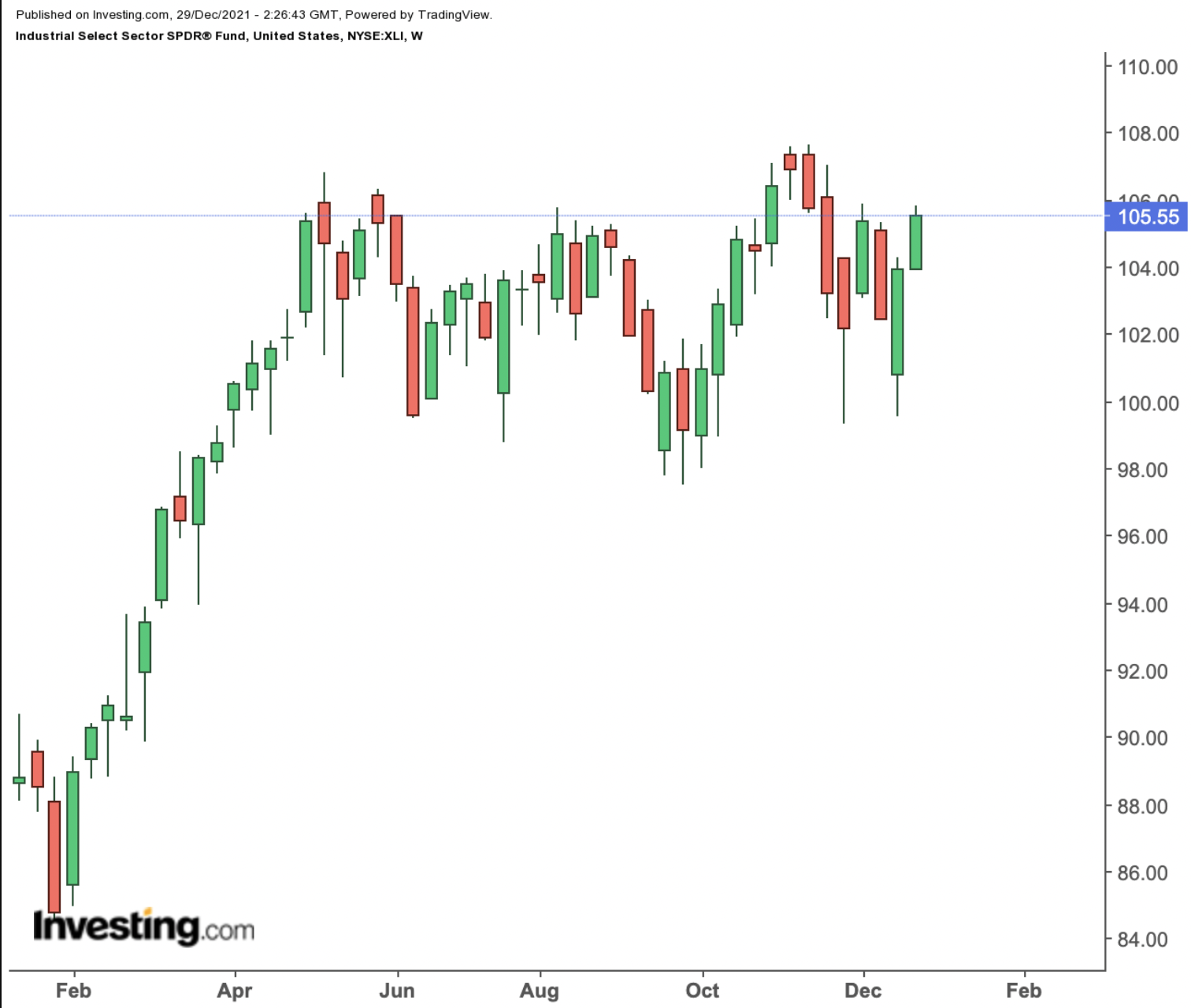In this third of a four-part series, we look at each of the 11 S&P 500 sectors and the exchange-traded funds (ETFs) that give exposure to each segment.
As we write, the S&P 500 is hovering at record highs, up 27.8% year-to-date. However, not every sector has seen the same return.
In the first part of the series, we looked at Communication Services, Consumer Staples and Consumer Discretionary. In the second, we covered Energy, Financials and Healthcare.
Now, we'll look at Industrials and Information Technology. We will conclude the series tomorrow, when we discuss Materials, Real Estate, and Utilities.
1. Industrials
The Industrial Select Sector SPDR® Fund (NYSE:XLI) gives exposure to businesses that manufacture, assemble or distribute capital goods. The sub-sectors include aerospace and defense, construction, electrical equipment, test and measurement, transportation as well as industrial machinery.

XLI, which follows the performance of the Industrial Select Sector Index, has 72 holdings. The fund was first launched in December 1998. About a fifth of the companies come from machinery, followed by aerospace and defense (17.38%), industrial conglomerates (12.82%), road and rail (11.65%) and air, freight and logistics (8.21%)
Leading names on the roster are the railroad transportation group Union Pacific (NYSE:UNP), shipping and logistics heavyweight United Parcel Service (NYSE:UPS), manufacturing and technology name Honeywell International (NASDAQ:HON), aerospace and defense giants Raytheon Technologies (NYSE:RTX) and Boeing (NYSE:BA), and construction equipment manufacturer Caterpillar (NYSE:CAT). Close to 40% of assets are in the top 10 stocks.
In 2021, the fund has added around 19.5%. Its dividend yield is 1.2%. XLI hit an all-time high in mid-November. Trailing P/E and P/B ratios are 22.62x and 5.03, respectively. Given the significant run-up in price, a potential decline toward $102 or below would improve the margin of safety.
McKinsey suggests that successful business in the industrials sector typically take “three steps: leveraging technology to achieve profitable growth, instituting better corporate oversight, and building a platform through M&A to drive expansion.”
Therefore, potential investors would need to research individual companies well to see if they deserve to be in their long-term portfolios. Alternatively, investors could consider buying an ETF. Two other similar funds are also worth noting: the Vanguard Industrials Index Fund ETF Shares (NYSE:VIS) and the iShares U.S. Industrials ETF (NYSE:IYJ)
2. Information Technology
In the past year, the S&P 500 Information Technology index returned 35.5%. This key sector includes firms from segments that include software and services, semiconductors and semiconductor equipment as well as technology hardware and equipment.
Increased digitalization during COVID-19 has meant significant growth for the sector. As a result, we have a wide range of ETFs that could appeal to investors:
- iShares Semiconductor ETF (NASDAQ:SOXX) — up 45.4% YTD;
- SPDR® S&P Semiconductor ETF (NYSE:XSD) — up 44.0% YTD;
- iShares U.S. Technology ETF (NYSE:IYW) — up 37.0% YTD;
- Technology Select Sector SPDR® Fund (NYSE:XLK) — up 35.6% YTD;
- Fidelity® MSCI Information Technology Index ETF (NYSE:FTEC) — up 31.4% YTD;
- Vanguard Information Technology Index Fund ETF Shares (NYSE:VGT) — up 31.2% YTD;
- Invesco S&P 500® Equal Weight Technology ETF (NYSE:RYT) — up 29.0% YTD;
- Invesco QQQ Trust (NASDAQ:QQQ) — up 28.5% YTD;
- Defiance 5G Next Gen Connectivity ETF (NYSE:FIVG) — up 26.0% YTD;
- First Trust Cloud Computing ETF (NASDAQ:SKYY) — up 11.2% YTD;
- SPDR® S&P Software & Services ETF (NYSE:XSW) — up 9.3% YTD;
- Invesco NASDAQ Next Gen 100 ETF (NASDAQ:QQQJ) — up 9.2% YTD.
As the above metrics highlight, semiconductors have been the darling of Wall Street. According to the Semiconductor Industry Association, “worldwide sales of semiconductors were $48.8 billion in October 2021, an increase of 24.0% from October 2020.” In 2022, annual global sales is forecast to grow by almost 9%.
Therefore, the new year is likely to bring record highs to many chip names. During the year, we’ll cover a number of high-growth tech funds in other sub-sectors as well.
